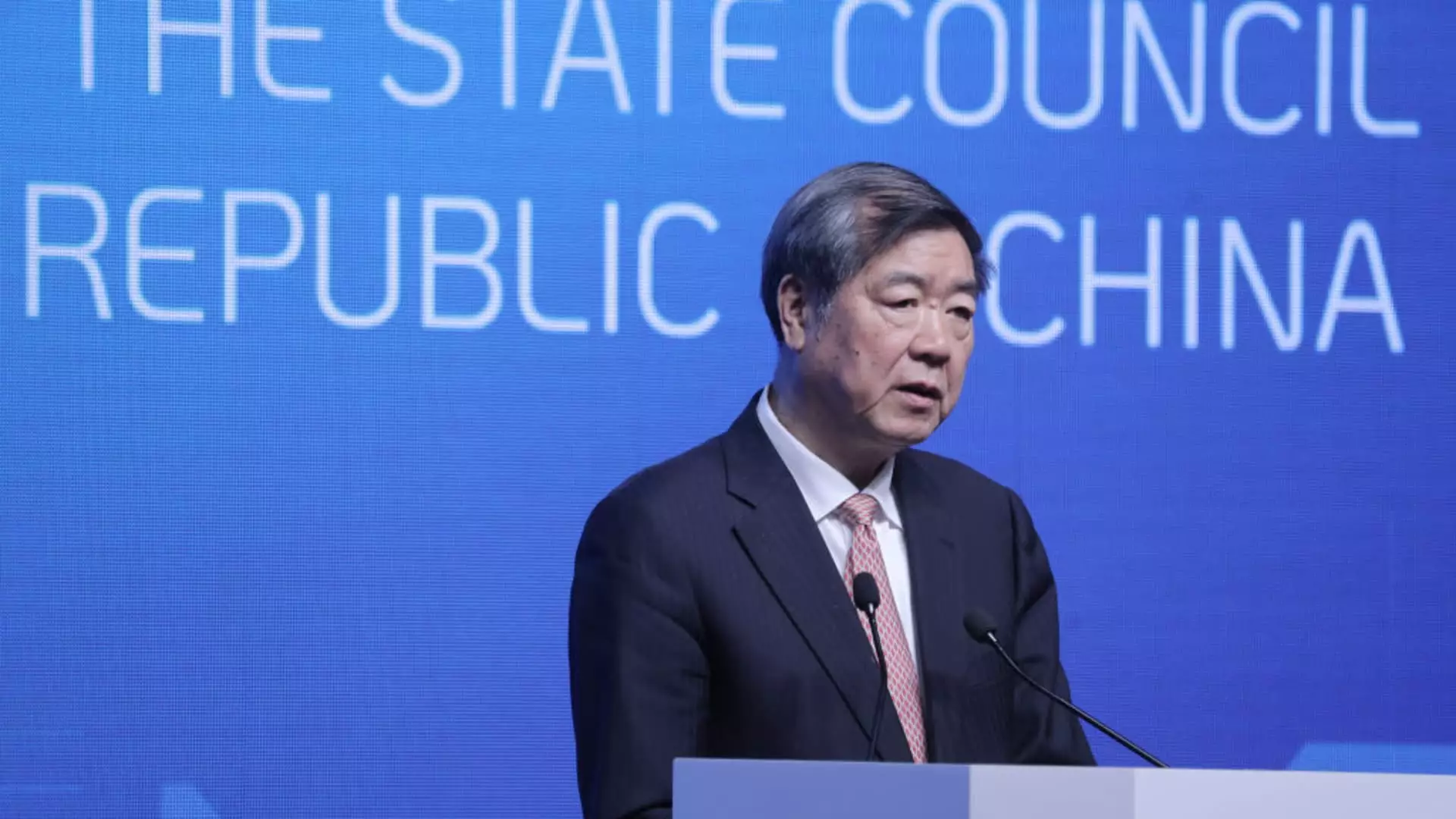In the wake of ongoing challenges, Chinese Vice Premier He Lifeng’s declarations at the recent Global Financial Leaders Investment Summit signal a renewed ambition to enhance Hong Kong’s position as a leading international financial hub. As the city grapples with economic slowdowns attributed to external pressures and domestic strategic misalignments, He’s commitment to fostering innovation and implementing favorable financial policies reflects an urgent need for a revitalization strategy across Hong Kong’s financial sector. The mounting frustrations on both the investor front and the operational scope of key banking institutions underline the critical nature of this endeavor.
He Lifeng’s remarks were not merely ceremonial; they encapsulated a broader agenda emerging from Beijing to not only rejuvenate Hong Kong but to also align it more closely with the ambitions of the mainland. The Vice Premier emphasized initiatives tailored to facilitate Hong Kong’s evolution into a preeminent international financial center. This vision is underpinned by the awareness that Hong Kong’s economic fabric is intricately woven with that of mainland China, a relationship that necessitates thoughtful policy integration. The call to leverage resources from the mainland while maintaining Hong Kong’s distinctive global connections represents a calculated move within China’s broader financial strategy.
Moreover, the observations of Li Yunze, the minister of China’s National Financial Regulatory Administration, spotlight a pivotal reality: nearly 80% of Chinese firms aiming for offshore listings prioritize Hong Kong. This figure underscores the city’s relevance and the potential for a synergistic economic relationship, suggesting that Hong Kong’s financial infrastructure remains a substantive asset in the face of increasing global competition.
However, the road to recovery is fraught with complexities. Recent statistics reveal a stark decline in Hong Kong’s stock market activities, marked by a 16% reduction in IPO and follow-on share sales in the first half of the year compared to the previous period. This setback, exacerbated by the flight of capital and job cuts among major banks, raises critical questions about the viability of the existing financial framework. The Hang Seng index, enduring a bleak performance streak, serves as a sobering reminder of the urgent need for effective intervention.
Despite these grim statistics, there are signs of emerging optimism. The Hong Kong Stock Exchange has reported a potential uptick in investor activities, attributed to newly introduced policies intended to stimulate the economy. As He Lifeng’s strategies begin to take root, the central government’s stimulus measures might just catalyze a turnaround in investor sentiment, providing a much-needed boost to Hong Kong’s faltering economy. The success of these measures will depend on how effectively they are implemented, alongside sustained engagement with both domestic and foreign businesses.
The emphasis on attracting foreign investment reflects a broader trend within China’s economic policy framework. Announcements regarding regulatory relaxations, such as lowering capital thresholds for foreign stakes in local enterprises, are crucial. These adjustments signal a robust willingness to embrace globalization, inviting international stakeholders to deepen their engagements within Hong Kong. As echoed by PBOC governor Pan Gongsheng, the commitment to upholding an accommodative monetary policy plays a vital role in establishing a conducive environment for foreign investors.
Furthermore, the participation of major international banks—HSBC, Standard Chartered, and Citigroup—at the financial summit exemplifies a renewed interest and potential partnerships. Their presence could inject crucial resources and expertise into the local economy, facilitating the necessary reforms Hong Kong needs to emerge robust from its current challenges.
Ultimately, He Lifeng’s vision for Hong Kong encapsulates a broader narrative of resilience and adaptation. The city must continuously refine its financial practices, attuning them to global standards while diversifying its investment offerings. The dual approach of nurturing local enterprise initiatives and enhancing international collaborations will be pivotal in reinvigorating Hong Kong’s financial landscape.
As it stands, the stakes are high. The successful revitalization of Hong Kong hinges on the cooperative relationships between the city and the mainland, the agility of regulatory reforms, and the pivotal role of foreign investment. The coming months will be critical as Hong Kong endeavors to leverage its historical strengths in providing a vibrant financial platform amidst evolving global dynamics, ensuring its place on the world stage remains resilient and competitive.


Leave a Reply